Amazon cuts Kindle Fire HD prices by as much as $100
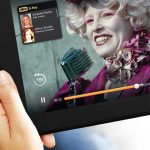
For tablets, 2013 is the year of small form factors -- and, presumably, lower prices. Amazon isn't waiting to see, and that's a good strategy considering Kindle HD might not be the device Goldilocks is searching for. Unlike the fairy tale where one is too big or two small, Amazon's tablet may not be just right. Proactive price reduction could change that.
Here's the problem: Several analyst firms now predict that slates with 7-7.9-inch screens will command the market, which puts 8.9-inch Kindle Fire HD a wee bit on the plump side. "One in every two tablets shipped this quarter was below 8 inches in screen size", Jitesh Ubrani, IDC research analyst, says. "In terms of shipments, we expect smaller tablets to continue growing in 2013 and beyond".
Google I/O sells out
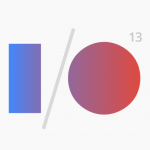
Blink and you missed it. Registration for Google's developer conference opened at 10 a.m. EDT this morning and sold out fast. With so much candy to offer -- Android Key Lime Pie, Chromebook Pixel, Glass and Google Now -- I'm not exactly surprised. Google I/O 2012 was big, and this year's event promises to be even bigger. I got the "Google I/O is sold out" on the registration page around 10:48 a.m.
Google charges $900 for general developer admission and $300 for students or school faculty. The event takes place in San Francisco from May 15-17. Considering the goodies Google gives attendees, some people might sign up just for the hope of free Glass or Pixel (don't hold your breath). Last year, attendees got Galaxy Nexus, Nexus Q and Nexus 7. Oh yeah, Train performed live.
Samsung is the new Apple
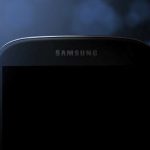
One measure of any brand's success is how much people talk about it. By that reckoning, Apple's star is fallen, while Samsung's rises. Consider the amount of rumors the past month or so about Galaxy S IV, which launches this week, and contrast that against near silence about anything Apple. Turn back the clock a year and you'll see modest buzz about the S3 but ongoing Apple rumors that stole the thunder from the Consumer Electronics Show, Mobile World Congress and just about every single new mobile product launch. (Yet this year, Apple efforts to overshadow CES failed.)
Then there was the noise, noise, noise from Apple's patent lawsuit against Samsung, which hundreds of bloggers and journalists used to repeatedly label the South Korean company the world's worst worrisome copycat. In the end Samsung's image is no worse for wear, while Apple rumors wear thin. The most prominent recent one is about a watch. For the wrist? What Citigroup analyst Oliver Chen calls a $6 billion business for Apple. Let me make that clear, because shorthand lacks the impact: $6,000,000,000! That's more than iPod generated in fiscal 2012 ($5.6 billion). Yeah, right.
Google Now for Chrome changes EVERYTHING
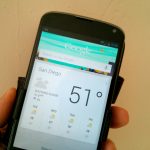
François Beaufort, the developer who recently made headlines by outing Chromebook Pixel, is stirring up things again. He uncovered code that all but assures Google Now will soon come to Chrome and Chrome OS. I can't overstate how enormously game-changing the service will be. Google Now is the purest evolution of sync and the killer app for the contextual cloud computing era.
We are on the cusp of Star Trek computing, where information is available at the command of your voice and the machine is a personal assistant that anticipates you. Google Now delivers a hint of this future on Android devices. Bringing it to PCs puts the search and information giant ahead of everyone because, with the exception of a possible future Microsoft-Facebook partnership, no other company has the resources to provide so much personalized information to so many people in so many places in so many ways.
Finally, you can stream Netflix on ARM Chromebooks
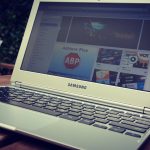
I wasn't going to write this as a separate story, resorting to Google+ and Twitter posts instead. But, hey, I'm Mr. Chromebook over here and would be remiss not informing the two people who somehow missed the news (You know who you are). Drum roll. Finally, four months after Samsung released the Arm Chromebook, you have Netflix. Stream it, baby, because you finally can.
"Today we launched HTML5 video playback for streaming content from Netflix for the ARM-based Samsung Chromebook, so you can now enjoy your favorite Netflix shows & movies", according to Google. There's not lots of fanfare in the statement, but I expect some from those of you who can finally couch-potato before your Chrome OS toy.
You don't hate Windows 8
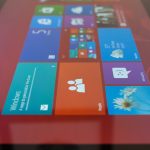
I nearly hurled coffee onto Nexus 10 this morning -- seriously had to choke back -- when seeing this ridiculous ZDNet headline: "Will 90 percent of users always hate Windows 8?" I immediately thought that someone must have done a shocking and provocative survey. But, no-o-o-o-o, writer Matt Baxter-Reynolds pulls the figure from his bee hind. He surmises this sensational figure based on absolutely nothing.
Coincidentally, I conducted two polls over the weekend designed to gauge Windows 8 sentiments -- what you really think about Microsoft's flagship operating system. I asked: "If Microsoft sold Window Vista, 7, and 8 side by side and you could buy the one you wanted most, which would you choose?" and "Is Windows 8 a failure?" We have a split decision on the latter, from good sample sizes -- more than 1,500 for the longer question and exceeding 1,300 for the other.
Givit takes on music videos
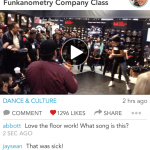
Social sharing and video-editing service Givit gets more musical, in an announcement made during SXSW in Austin today. The Givit app is exclusive to iOS and seeks to be to videos what Instagram is to photos.
The new focus is all about music videos or setting moments to music, and iPad, iPhone or iPod touch users shooting, editing and sharing the creations -- straight from the device. "Anyone can now create an amazing music video or reimagine their favorite moments right from their iPhone, adding new clips, sound or transitions and share socially however they choose", Givit CEO Greg Kostello says.
OMG! Unicorn Apocalypse is a real game
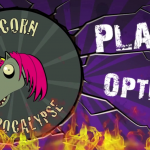
Samsung owned the Oscars, by running a series of long commercials about a software company using Galaxy S3s and Note IIs to create game Unicorn Apocalypse. The TV spots were compelling marketing. You simply must watch the 90-second spot featuring filmmaker Tim Burton looking to make zombie unicorn movie "Horn of Darkness".
Unicorn Apocalypse went live on Google Play today (South Korean time). The "game is the winner of Samsung's contest to create the game discussed in the Samsung TV commercials", the company explains. "As the world crumbles and burns, a lone unicorn wreaks havoc on the last of humanity". Reviewers wreak havoc on the game, with 80 one stars out of 142, as I post. Hey, but they are polarized. Another 37 give Unicorn Apocalypse five stars.
Facebook clones Google+
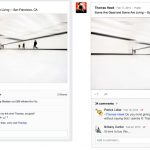
Three days ago, I told you "Suddenly, Facebook looks more like Google+, only better", based on the product launch demos. But seeing is really believing. Photographer Thomas Hawk, whom I've followed online for a long time, has the new FB News Feed. His side-by-side shot of the two social networks is a real shocker. You're not seeing double.
I suppose there are few obvious ways to present big, bold images in the feed and supporting links around them. But this copycatting is something. "Content in the new news feed feels a lot like Google+", Hawk explains. "I’m not saying Facebook copied Google+ here, and imitation is, of course, the sincerest form of flattery and all that, but check out the two content envelopes side by side in the photo...They are pretty darn close".
Is Windows 8 as bad as Vista, or even worse?
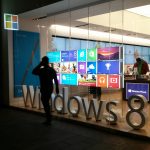
That's the question on my mind today, as an executive from yet another PC manufacturer disses the operating system. Yesterday, Jun Dong-soo, who heads Samsung’s memory chip operation, told Korea Times: "Windows 8 system is no better than the previous Windows Vista platform". Remember, Microsoft gave developers Samsung slates in autumn 2008 to test Windows 8. Samsung shipped touchscreen models for the previous operating system, when few other OEMs did. So the slap is no small one, and worse: "MS’s rollout of its Windows Surface tablet is seeing lackluster demand", Dong-soo asserts.
I don't agree with him, by the way. On Monday I explained: "How I came to love Windows again". Two words: Surface Pro. I find Windows 8 to be remarkably efficient and fun to use on the touchscreen tablet convertible. Modern UI really is modern, trendsetting. But I'll be first to concede that users won't get the same kind of experience using just mouse and keyboard. Touch changes everything.
What I really think about Google Chromebook Pixel
Second in a series. Fourteen days using Google's first computer, my decision is made: I would buy one and will someday (taxes are brutal, so my options are limited short-term). I firmly believe that most buyers willing to spend $1,299 (32GB WiFi) or $1,449 (64GB 4G LTE) will be satisfied with Chromebook Pixel. That's because I presume they wouldn't dole out that much without really examining how the computer would fit their lifestyle; also, Google seeks the same people coming from Windows who might buy MacBook Pro 13-inch.
Seven days ago, in my first-impressions review, I looked at the overall experience and price benefits from the perspective of hardware. Here, I start to answer larger question: Can Pixel be your main and only machine? For most people, the answer is an unequivocal "No". But "most people" isn't Google's target market.
'Be safe out there' is brilliant marketing
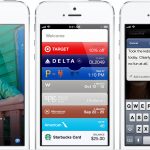
Phil Schiller doesn't cast a big shadow. Sure he is Apple's big cheese over global marketing, but in product briefings or Apple keynotes, Schiller never struck me as having much presence, particularly around the charismatic Steve Jobs. Somehow, I expect lead marketer to be more like Don Draper of AMC's "Mad Men". Schiller has lots of enthusiasm, but not command. He comes across as too nice a guy.
But make no mistake, his contributions to Apple, over nearly two decades, are immeasurable -- and not the topic of this post. There's another kind of presence, one of brilliant ideas and behind-the-scenes leadership. Yesterday, Schiller showed his brilliance, and scored a tremendous marketing coup for Apple in just four words: "Be safe out there".
Suddenly, Facebook looks more like Google+, only better

Today, the world's largest social network announced a sweeping overhaul to major UI motif News Feed. Photos are bolder -- as are advertisements -- and white space more generous. But the big change is uniformity, as Facebook offers a fairly consistent visual experience across devices. That's a claim Google can't make.
Still, Facebook looks lots more like Google+ -- or will once changes roll out to everyone. That's a good thing. Clutter creep long defines the Facebook user experience, something its rival avoids. Well, so far. But the larger social network isn't copying Google+ so much as acting out of necessity. All that clutter in the browser overwhelms smaller device screens, particularly smartphones. To get similar UI across devices, something had to go -- and come, too.
Is Android 4.2 killing your Nexus' battery life?
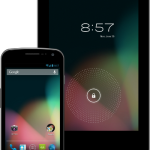
My joy at receiving Nexus 7 32GB HSPA as a day-after-Christmas present turned to deep disappointment just two weeks later. Google replaced the device, and a second runs down the battery in about 15 hours, whether sitting idle or actively used. Near as I can tell, and others share my problem, Android 4.2 is root problem. My woes with the replacement tablet started with the point-two update, while others suffering similar misery report troubles with 4.2.1. Google really needs to fix this problem. Fast.
I wasted many hours troubleshooting. The prescribed fix is restore and reset, which I've done about a half-dozen times. No change. Perhaps the cellular radio drains the battery fast. I removed the SIM. No change. Maybe one of my apps keeps Nexus 7 from going idle. I restored and set up with my wife's Google account. No change. The battery app consistently lists the "screen" as top consumer, which suggests something prevents the tablet from going idle. Last night, I charged up. Nine hours and thirty-minutes later, there is 45 percent charge. At that rate, I'll set a new record: 16 -- maybe even 17 -- hours to zero. What a lucky day this is.
What Google Play's first birthday means to you

One year ago, March 6, 2012, Google renamed Android Market, and nothing is the same sense. The rebranded Google Play pushed forward a transition started in November 2011, with the broad expansion of content beyond apps. The name change also represented something bigger, shift in emphasis away from broader Android to the search giant's siloed services and brands. Google sought to imitate Apple while tackling wild Amazon.
On Play's first birthday, Google Android -- not the skinned software Amazon, HTC, LG, Samsung and others ship -- is a 98-pound weakling gone super steroids. The Mountain View, Calif.-based company sells apps, ebooks, gift cards, magazines, music, movies, TV shows and devices through the online store. There were no devices available a year ago, but now accessories, Chromebooks, smartphones and tablets. Three different computers are available, including the new and Google-branded Chromebook Pixel. Also: Two different Nexus 4 smartphones and Nexus 10 tablets and three Nexus 7 slates -- four if counting 32GB HSPA+ models twice, with different cellular SIMs.
Joe's Bio
Joe Wilcox is BetaNews executive editor. His motto: Change the rules. Joe is a former CNET News staff writer, JupiterResearch senior analyst, and Ziff Davis Enterprise Microsoft Watch editor.
Ethics StatementBetaNews, your source for breaking tech news, reviews, and in-depth reporting since 1998.
© 1998-2025 BetaNews, Inc. All Rights Reserved. About Us - Privacy Policy - Cookie Policy - Sitemap.
